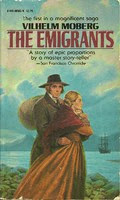
While traveling to and from Mexico this month, I read Veronica Roth's YA novel Divergent.
My niece Maya is a huge fan of dystopian fiction and this book came highly recommended (as did The Giver many years ago and the book that launched this site).
I have decided that my job (as a LiAM blogger) is not to sell books or entice people to read stories. I want instead to discuss books I have read without having to speak cryptically or tip toe around the plot. So with that in mind, here is a general description (taken from Amazon) to be following by my SPOILER-filled discussion of the book.
"In Beatice Prior's dystopian Chicago world, society is divided into five factions, each dedicated to the cultivation of a particular virtue -- Candor (the honest), Abnegation (the selfless), Dauntless (the brave), Amity (the peaceful), and Erudite (the intelligent). On an appointed day of every year, all sixteen-year-olds must select the faction to which they will devote the rest of their lives. For Beatrice, the decision is between staying with her family and being who she really is -- she can't have both. So she makes a choice that surprises everyone, including herself."
* SPOILER * SPOILER * SPOILER * SPOILER * SPOILER *
What did I like best about Divergent?
I like the visual language of the story, most specifically the symbols of the five factions (mentioned above and shown below) and how the members of Dauntless each get a meaningful tattoo to represent what's important in their lives (such as family in spite of the expectation that their faction comes first) and also as a marker in one's growth when difficulties are overcome and mastered. This is a great message for YA readers.

I also like the love story between Tris and Four. The relationship is sweet in spite of the brutality they have opted to take part in. The two characters work together as a team and respect each other. Be true to yourself and those around you. Another great message for YA fiction.
What makes for a dystopian YA novel?
Having read only a few, here are the re-occuring characteristics I have noticed in the genre.
Strength.
Dystopian stories often include a strong female protagonist who can fight and isn't afraid to take on responsibility.
Brutality.
These books are rough. Tris is involved in a competition of strength and ability. She overcomes her fears and pushes through obstacles as part of her initiation into the faction Dauntless. While The Hunger Games has been the catalyst for most of the media attention given to this genre, Divergent is a little less upsetting. Tris isn't involved in a gladiator-style fight to the death where teenager is pitted against teenager. Her conflict is dangerous but it's somewhat controlled and not being held for entertainment purposes. I think of Tris as a Ronda Rousey character taking part in an MMA bout. She can handle the challenge. She is tough, and even though she's small, she can win.
Excitement.
According to an article published in the Guardian and found here, the real pull for these books is the excitement they generate and I have to agree. The second half of the book flew. After a slow start and maybe one too many simulation drills, I was lagging. Then the pace started to quicken. The computer program is stalled but not dismantled. Tris and Tobias are on the run. Caleb is faction-less. Christina is missing. The parents are dead. Then, wham, the book is over. The ending was so sudden.
Will I read the follow-up book Insurgent?
You bet, I will. Too may things were left unanswered. Is Tori a good guy? I have a sneaking suspicion she might not be. Are they being kept inside the compound or is the fence really meant to keep something out? When I find out, I'll let you know.
Divergent is the first of the trilogy, followed by Insurgent and a third installment due out in October 2013.







